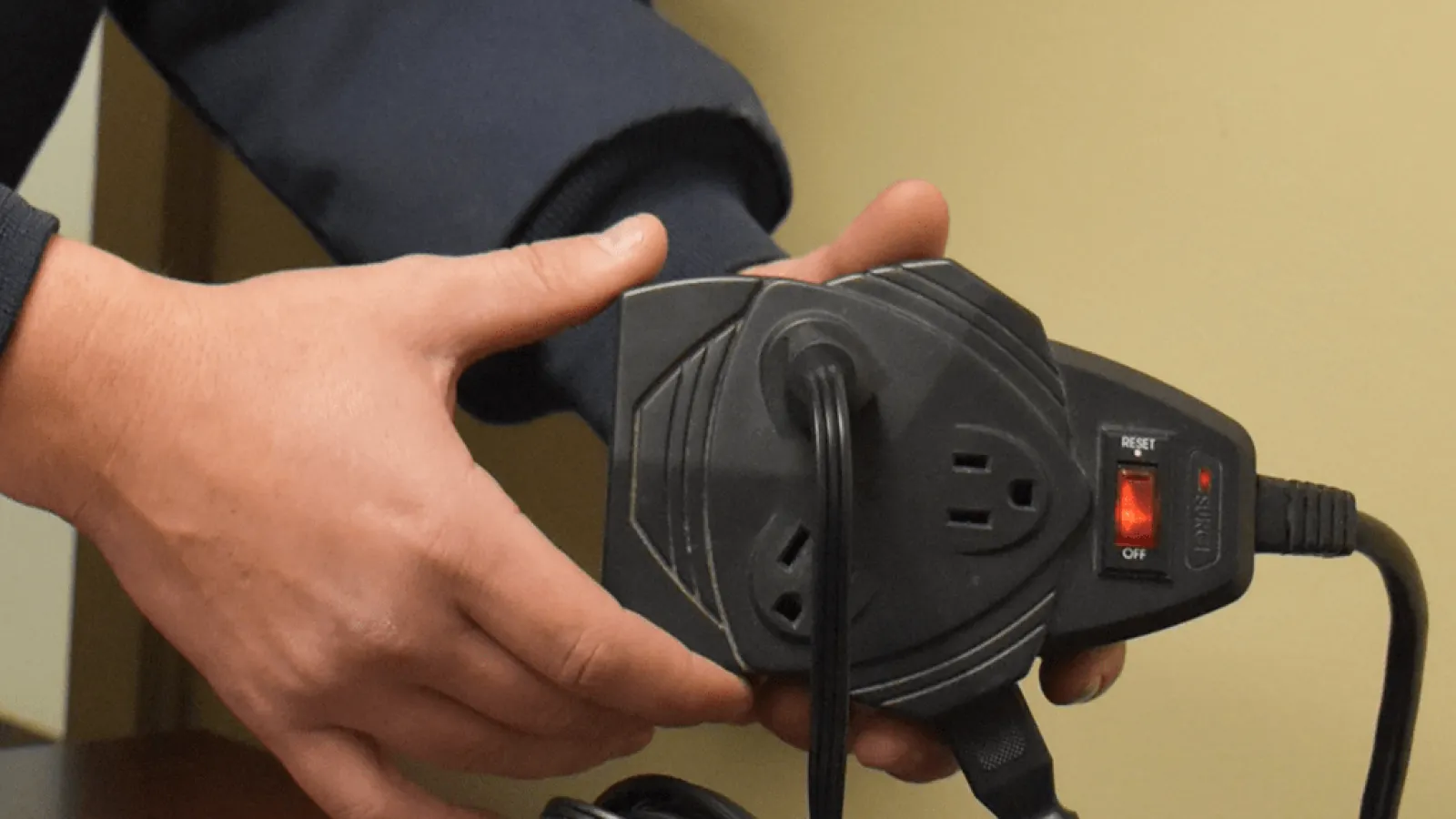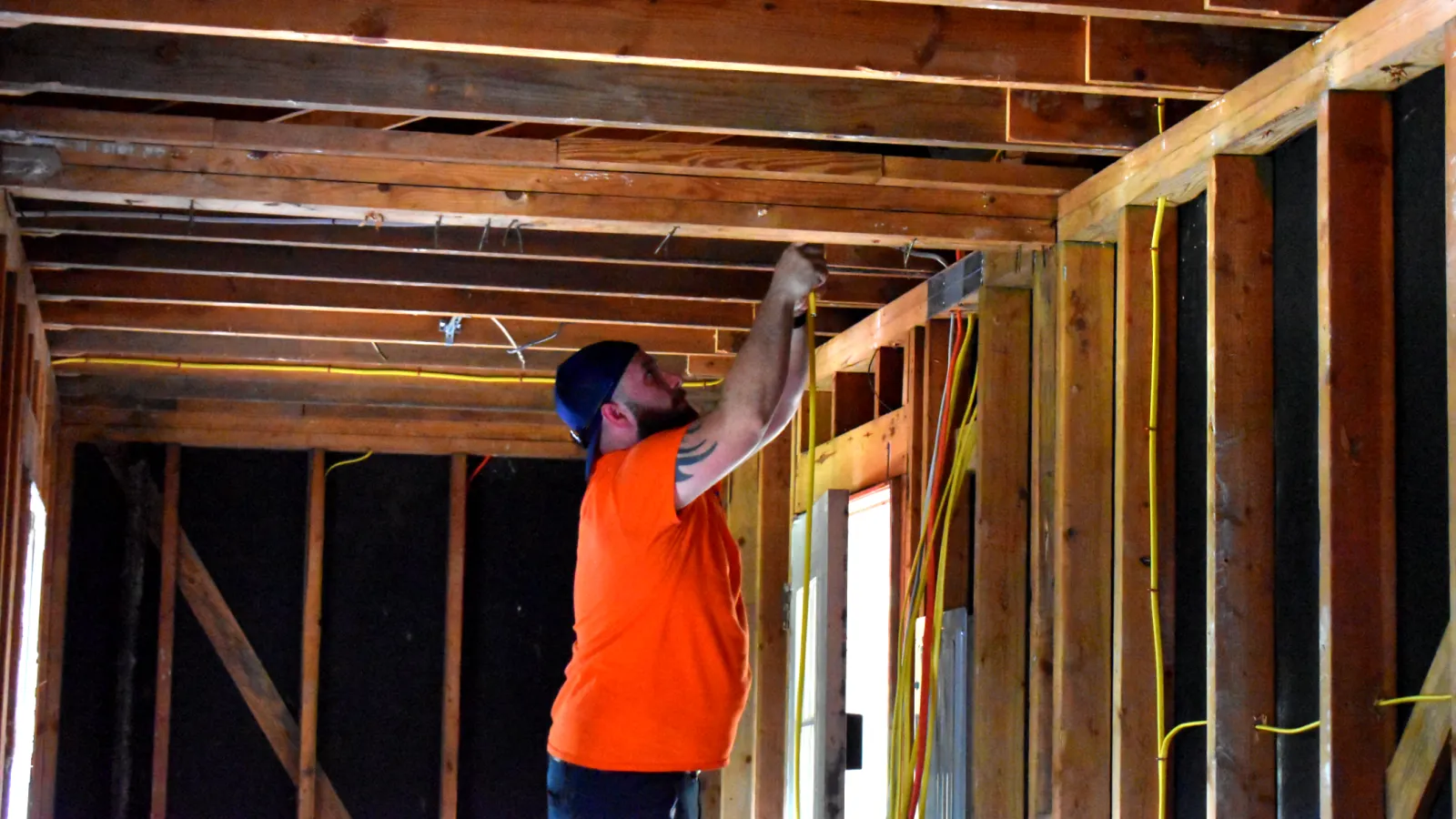Surge protectors are widely used as a method to protect appliances, computers, and other electronics from electrical surges at home. However, simply plugging your equipment into such a device doesn’t ensure it is safe from a surge. How do surge protectors work, and do they work on ungrounded outlets? Estes Services answers your questions about surge protector use and keeping your belongings safe.
Electrical Surges and Spikes
A surge protector is a device that protects electrical equipment and devices from power surges and spikes in the home’s electrical system.
- Surges are a temporary increase in the amount of voltage traveling through a circuit (voltage is typically 10 to 35 percent more than normal voltage), which can last a few milliseconds up to a number of minutes. A surge can occur from inside a home when an appliance turns on and draws power, or due electrical issues such as loose connections or arcing. External surges can be caused by downed power lines.
- Spikes are intense bursts of high voltages that last just a few milliseconds. They can occur when a circuit breaker is tripped or a short circuit, or due to external issues like a lightning strike or power grid issue.
Those momentary spikes and surges of electrical voltage can cause serious damage to appliances, electronics, and other devices plugged into the home’s electrical outlets. Damage may happen right away, or items subjected to frequent small surges caused by appliances turning on may be subject to slow strain over time and eventually fail.
How Does a Surge Protector Work?
The job of a surge protector is to detect excess voltage that enters the power line. Surges essentially overload the system with excess electrical pressure, and the surge protector works to relieve this pressure. When detected, the device reroutes the voltage through its grounding wire to protect devices plugged in to the circuit. The grounding wire provides a safe path for the excess voltage to travel back to the ground.
Different types of surge protector equipment are available. Whole home surge protectors are installed at the home’s main electrical panel and work to suppress surges that occur on individual circuits within the home as well as those originating from external sources. Individual circuit surge protectors are devices that are installed at or plugged into an outlet, then devices are plugged into the unit.
Do Surge Protectors Work on Ungrounded Outlets?
Grounded outlets have been required by electrical safety standards since the mid-1960s. In homes built prior to that point – if the electrical system has not been upgraded – there may be ungrounded outlets. Without a ground wire, transient voltage from a power spike or surge is not diverted safely to the ground – instead, it can flow to nearby materials, including people.
How do surge protectors work on ungrounded outlets if there is no ground wire? Grounding is a critical element required for proper surge protection. In regard to the question about whether surge protectors work on ungrounded outlets, the answer is “no.” Surge protection equipment typically uses components called metal oxide varistors (MOVs) to divert excess current into the ground line. An ungrounded outlet does not have this third ground wire, therefore there is no place for the surge protector to divert excess current.
Do surge protectors work on ungrounded outlets when plugged into a three-prong to two-prong adapter? The answer is “no.” Simply plugging a grounded surge protector into an adapter does not change the fact that the outlet is not grounded, thus no protection is provided.
Solutions for Surge Protection
If you’re asking, “Do surge protectors work on ungrounded outlets?,” lining up proper surge protection isn’t the only issue you need to address. Protect your family, your home, and its contents when you upgrade your home’s wiring system and outlets to add a ground wire. Ensure the job is done right – work with the licensed electricians of Estes Services. Contact us today to discuss your home’s electrical upgrade needs.


